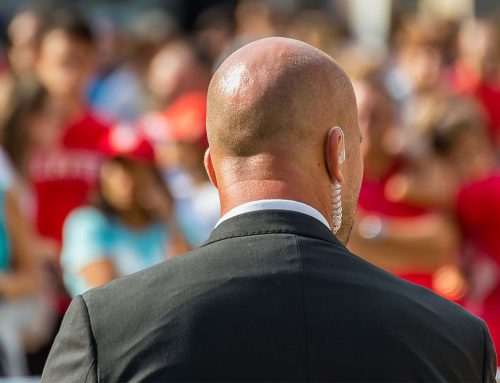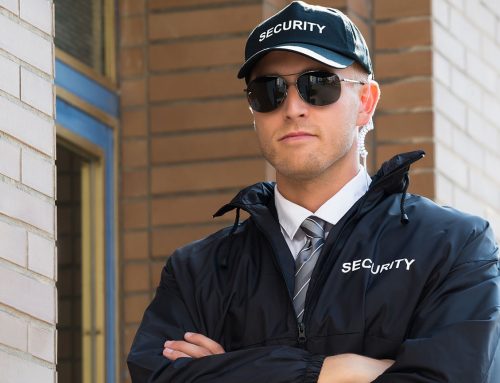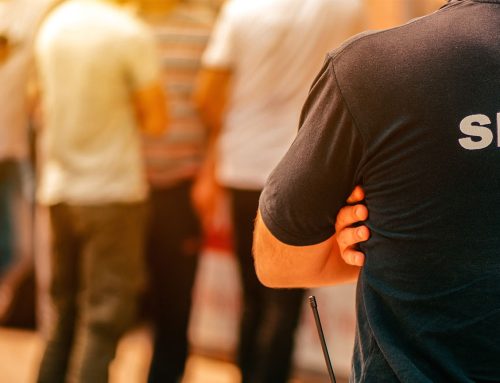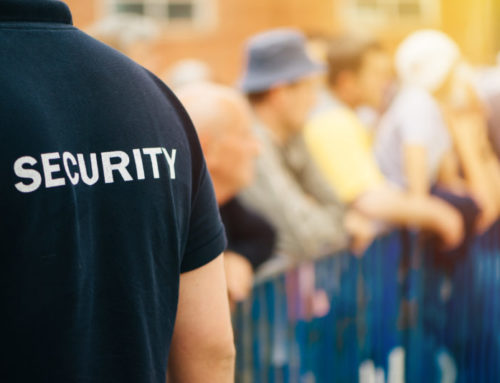When planning an event, it is crucial to get an event security team to prepare, just in case some accidents happen at the time of the event. You have to ensure the safety of events, the people, and the location. Everything should go according to your safety plan, and these calls for putting some extra security measures and protocols.
What is Event Security?
Events security entails far more than just putting the venue with lots of security personnel. The whole process is quite complex, and it requires extensive communication and coordination. With the right security practices, you’ll ensure your guests’ and staff’s safety in the events. Besides, you’ll prevent damage to the venue itself and the related property and belongings used in the event.
Tips to Reduce Risk in the Event
When planning your event, one thing that you need to establish is your need for security. You should know all the tips for event security and not assume that you do not need protection only because you plan a small event. You need to know the importance of events security and remember that getting a security team is not only about dealing with the worst-case scenario in the event.�
Prepare an Assessment For Security Risks

In terms of security, different events also have different degrees of security needs. For example, a politician’s campaign speech may impose a higher risk than a debut birthday celebration. The first step you need to take is to assess your security risk depending on your event. Here are some essential things to consider:
- List the names of your event host. Be it an individual or a group of hosts.
- Know the attendees of your event. Are they high profiles? Do they attract controversy?
- Know the context of your event. Evaluate if the topics will invite event security problems.
- Know all the people who are speaking, performing, and exhibiting at the event. Do they have extra security?
- Consider the number of audiences since large audiences sometimes encourage agitators.
- Check if the venue has any security vulnerabilities. For instance, an outdoor venue is much harder to secure than an indoor venue with fewer escape routes.
- Check if the location has non-human security threats such as flood risks in the area, a highway nearby, or roaming wild animals around the room.
Keep Your Security Measures Visible
The central goal of event security isn’t about responding to threats but rather to prevent risks and accidents in the event. Therefore, it’s best if a potential agitator sees all your set up security measures and equipment in the area.
Making your security team and devices visible is one of the best practices to reduce event risk, and it may also make your attendees feel secure throughout the event. On the other hand, hiding your security devices or putting the security team undercover throughout the event does not prevent risk but instead gives more harm and threats. Keeping your security measures hidden will make the agitators think that the event is not protected with security, allowing them to start causing trouble.
Set Up Security Checkpoints
One of the best tips for event security and protecting people from security threats is to conduct checkpoints away from the gathering, allowing the attendees to pass through to get inside. This action might force the agitators to confront your security personnel or even just your registration staff before they cause any damage to your event.
Thus, instead of setting up your registration desk right outside the event place doorway, it would be better to place it a few hundred feet away in the event’s lobby. With this, your security personnel can easily block an uninvited person who tries to enter and cause trouble in the crowd.
Reduce Crowd Density
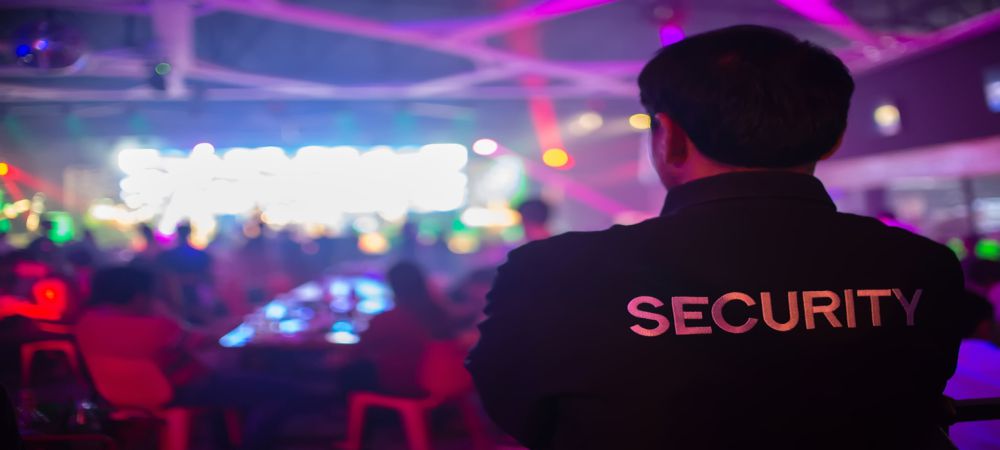
When you’re planning an event, you should consider how many people you can comfortably fit in the event venue. However, in terms of security, opting to reduce crowd density in the event and not go beyond the number you need can be a good idea in lowering the risks. Security issues tend to occur in closely compacted, crowded and concentrated areas. Aside from that, when it comes to heavy-hitting topics such as terrorism, it’s been discovered that even the fear of terrorist activity can lead to crowd catastrophes. Spreading out the crowd and having an additional event security team to cover the entire venue can reduce some of those risks.
Related article: Concierge Security: Roles, Benefits, Cost
Collect IDs During the Registration�
It’s crucial to collect the identifying information or IDs in advance when they register to ensure that they belong in the event. Collecting multiple personal data points like name, address, date of birth, age, etc., will make it harder for an intruder or agitator to copy someone’s identity.
Ideally, you must require your guest to send you a copy of their IDs before the event so you can compare it to their IDs at the entrance gate. It is the best way to confirm identifies and one of the best practices to reduce event risk. For instance, if someone fails to bring a valid ID or his/her ID doesn’t match their registration information, it’s best not to let them in.
On the other hand, if you don’t require pre-registration to attend your event, you must check their belongings before entering the event. You may use magnetometers wherever applicable, but sometimes that becomes a challenge due to power. If that’s the case, you can use a hand-held metal detector wand as an alternative.
Keep Private Events also Private
Some organizations or companies tend to publicly announce their events, even though the events are not open to public audiences. Sometimes, they also mention their events on websites, social media, newsletters, or press conferences. Some are only proud to announce their annual event. However, informing the public about an event may only attract security risk.
For instance, if an annual party of a company’s upper management isn’t open to everyone, there’s no need to announce it to the public. If intruders don’t know about the event, they can’t disrupt it or cause trouble to the main event.
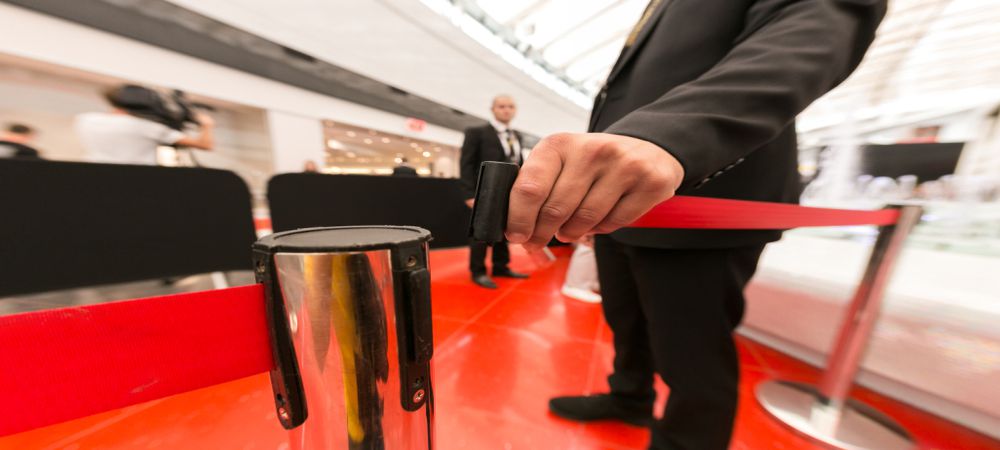
Watch Out for Cyber Threats
Not allevent security risks are all physical activities. As an event planner, you should also watch out for cyber threats. You should take some steps to protect your guests’ identities, data and devices.
As a kick-starter, it’s best to put a password to protect your Wi-Fi service. It isn’t always practical during large events, but it will protect your guests, performers and other VIPs in your event against security threats by keeping unwanted parties off the network. Share the password through means that only your guests can access. You can put it in the registration materials or much secured if it will pass through a custom event app.
Another tip for event security is to hire an IT person who will run security measures on the network to ensure that malicious and unwanted parties can’t enter the database to sneak data on or off the guests’ devices. On the other hand, if the venue provides its Wi-Fi network, it’s better to review the cybersecurity steps they take to ensure that all devices logged into the system can’t access other devices.
Develop an Emergency Plan
You don’t want to sit with your security team in the venue only to create an emergency response plan during the actual event. So, it is better to develop an emergency plan ahead of the event. The primary purpose of the plan is to draft a procedure that everyone will implement in an emergency.
The plan should include:
- Several ways to mass evacuate the attendees of the event.
- Action plan to do when there’s an active shooter.
- The locations of safe rooms or areas in the event.
- A location where the staff should meet during an emergency.
- How personnel will communicate during an emergency.
- How to direct guests during an emergency.
- Signages and notifications for guests regarding how to respond during the emergency.
Screen Your Team
Another thing you should take note of event security is the people you are working with. Conduct background checks on your personnel. If your team doesn’t work together often, it’s good to introduce them to one another before the event. You may instruct them to look out for people who don’t belong to the team. You may also give your team a unique identifier on the day of the event for easy recognition.�
Key Takeaways
Events security has become an essential part of the event. Even the best-laid event plans can be tragic without the implementation of security measures especially if you are planning to serve alcohol at the event. It is crucial to hire an event security team to ensure the event’s safety and the people, regardless of what event you plan to create.
Northern Force Security professional consultants are focused on providing you with the right approach and advice in order to prepare you and your staff for your next events. You may contact us at (647) 982-1385 or email us at office@nfsecurity.ca to get our services.



